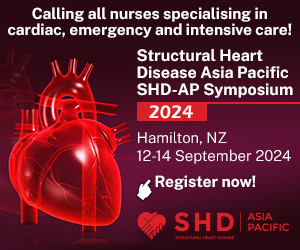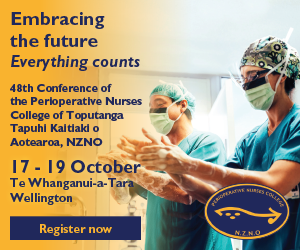In Aotearoa, the true nature of the COVID-19 pandemic has yet to run head-on against the true nature of nursing.
Nurses are supposed to save people, says Mahina Adams.
But when an entire system is swamped by illness, there is only the unbending, unyielding pressure of numbers: The number of patients, versus the number of health-care professionals; the number of beds and respirators; ages, oxygen levels.
In the end, it is the memory of the hardest decisions, the numbers, that brings Adams to tears, forces her to stop and gather herself again.
Adams, a Māori-Frenchwoman, and registered nurse, spoke to Kai Tiaki Nursing NZ about her experiences in the French hospital system at the first peak of the global pandemic.
She spoke as the Delta variant forced rapid public health changes in Aotearoa; a switch from elimination to a reliance on a 90 per cent vaccination rate as the borders eventually reopen, and alert levels give way to a new traffic light system.
The changes come amidst ominous warnings about a health system already near capacity.
Adams, 23, said while she was born and grew up in France, she was currently in New Zealand with her Māori father, but would return home, to France.
She became a nurse after caring for her grandfather; Adams also saw her cousin – a nurse – as a role model. “I was, like, ‘I want to become like you, and look after people’.”
Starting young in nursing
She was 18 when she started her first clinical placement, which in the French system came four months into her nursing degree.
Patients in the Paris hospital were sometimes surprised by her age, but the nursing staff was supportive.
Many people in France might ask about her ethnicity – and were often delighted to find out her heritage.
In France, they loved New Zealand, she said. Most of her friends wanted to come to Aotearoa.
It seemed a safe place to many around the world. Adams has started to learn about her Māori culture too.
“I’m proud to be Māori.”
One week into her last clinical placement, a five-month hospital stint in her final year, she was pulled aside by her head nurse and warned something was about to happen.
It was March, 2020, she was training in an emergency department (ED), and COVID-19 had arrived in France. The first patients, she was told, were arriving.
She spent two weeks in the ED before she was shifted to the intensive care unit (ICU), which was “busy, busy, busy”.
Adams spoke carefully about what happened in the French system next. It’s hard, she said, to find the words. And she simply did not want to scare New Zealand nurses.
But it was “terrible”.
ICU nurses ended up looking after up to three to four patients at any time as the virus spread quickly through the community.
Before COVID-19, most of the ICU patients were post-operative from the likes of cardiovascular surgery or transplantation. Soon the hospital was full of COVID-19 patients; it only had about 26 ICU beds.
With no space in ICU, patients would be placed on oxygen in general wards. If they worsened, and if there was a bed, and if they met criteria, including being under 70, then they might make it into ICU.
Many of the patients died. A makeshift freezer was set up in front of the hospital to take the bodies.
“In France, everybody knows someone who had COVID, or died of COVID… but last year was very hard. Especially in ICU. We are supposed to save people.”
Her advice to people working in the health sector was to stick together.
“Stay close to each other,” she said. In France, one of the few good things to come out of COVID-19 was that it united nurses, doctors, and health-care assistants into a single team.
The mistakes and experiences of the health systems in places like Europe could be helpful in New Zealand, which had largely been able to avoid widespread community cases, she said.
Nurses in Aotearoa must now get vaccinated against COVID-19. There were some in the profession who opposed a vaccination mandate.
In the community, vaccination rates for Māori remained behind the overall population.
This came after repeated warnings from Māori experts that the rollout would not be equitable.
Adams said she had seen bitter disputes over vaccination in France. But she hoped her experiences might help inform nurses in New Zealand.
“I’m only 23 but with COVID I’ve got a lot of experience, unfortunately.
“I think my little voice can help nurses in New Zealand to really understand what’s happened over there.”
Adams, vaccinated since March, said she wasn’t here to change the minds of people on the issue herself, or force people to change – but maybe with more information they might see a different perspective.
She said she did her own careful research before getting vaccinated.
“For me as a nurse, the main thing is taking care of patients, and for that I have to be in good health.”
She understood many people might be reluctant to get the vaccine, but there was solid research available to help decide.
Adams said many people thought their own good health would protect them against COVID-19. But the disease “chooses us”, not the reverse.
She had seen patients her own age who were previously in good health, in ICU with COVID-19.
“It’s not only old people, that’s not true at all… we took care of a co-worker …I took care of two doctors. Nobody is safe.”
The experience was hard, some nurses simply quit because of the pain. Some burned out, she said. But most carried on. As for Adams, the experience made her feel like she genuinely was a nurse.
Despite launching her career amidst some of the toughest challenges facing health care professionals, Adams plans to return to France and return to nursing as well.
“Because I’m proud to be a nurse.
“It’s my voice, my way, and it just gave me more confidence.”



